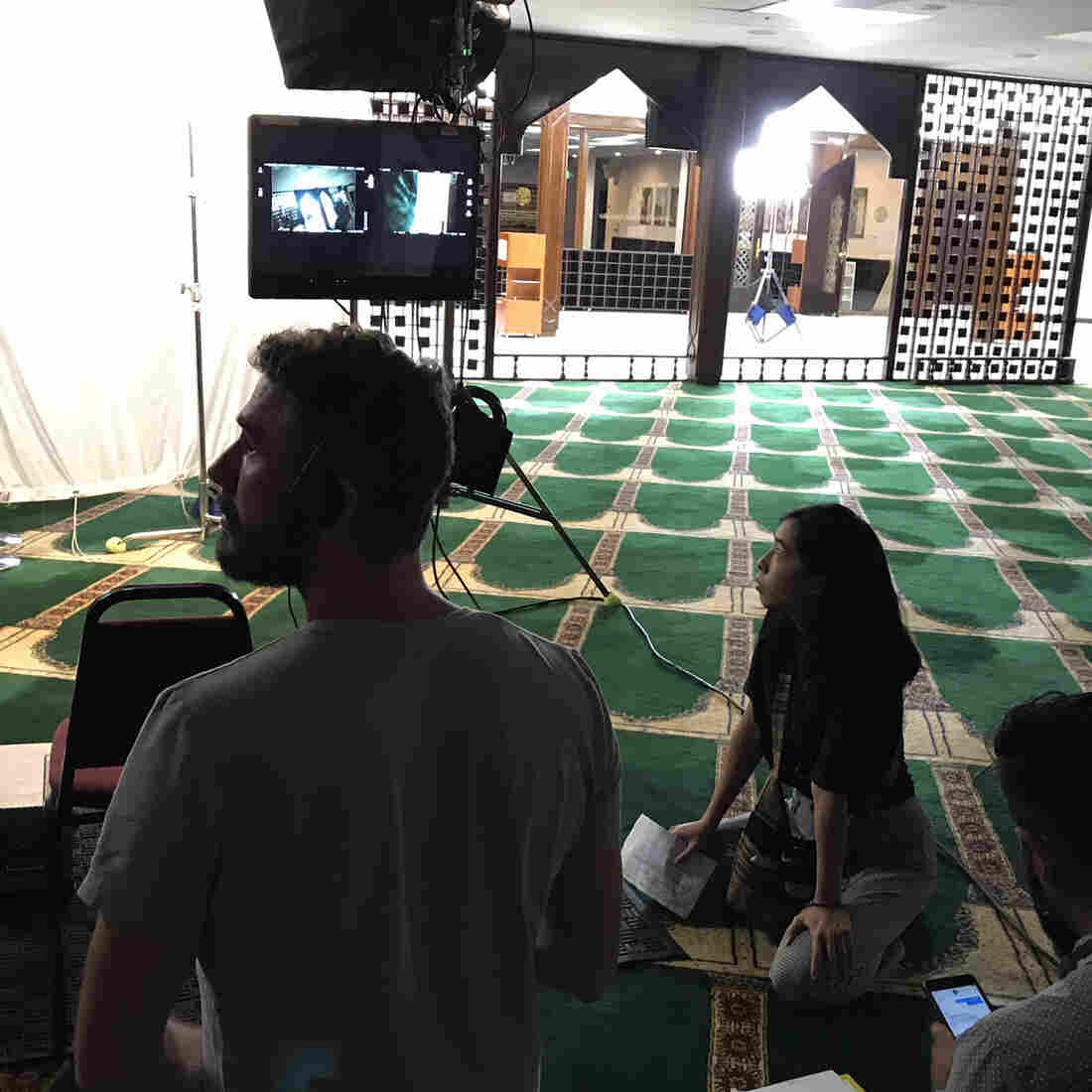by LEILA FADEL

On the set of East of La Brea at the Islamic Center of Southern California. The Web series, which focuses on two Muslim-American women, is one of a new crop of shows featuring Muslim characters.
Leila Fadel/NPR
On the last day of taping for a new 10-part Web series called East of La Brea, the cameras are set up at a local mosque for a scene about a 20-something black Muslim woman who’s praying. Suddenly her phone rings and the quiet space fills with raucous and racy lyrics from a pop song. Around her, older women shoot her shady stares.
This show is one example of what appears to be a shift in Hollywood. On TV and on online streaming services, Hollywood watchers say more Muslim characters than ever before are showing up in sitcoms and dramas. The characters they portray are more nuanced and more complicated than usual. In part, that’s because many Muslims themselves are writing these shows and characters.
East of La Brea is a show about being in your 20s and figuring out life against the gentrifying backdrop of Los Angeles, told through two main characters, roommates who are Muslim. But that’s not the entirety of the women’s storylines, says Sameer Gardezi, a Pakistani-American screenwriter and the creator of the show.
“I really feel like when people watch this it’s going to feel like [it is] an LA story,” Gardezi says. “Being Muslim is part of them, we don’t ignore that, but at the same time their problems aren’t necessarily faith based; they are based on other aspects that I feel are more relevant to what it means to lead an American life.”
Things like paying rent, feeling lost in a dead-end job and dealing with addiction in a family.
The Web series is the first project from Powderkeg, the digital media company founded by director, writer and actor Paul Feig, known for directing films like Bridesmaids and creating the show Freaks and Geeks. The company was founded to uplift underrepresented voices.
East of La Brea follows the friendship of two Muslim women of color, one black and one Bangladeshi-American. It was created with a grant from Pop Culture Collaborative, an organization whose goal is to boost authentic stories about minority communities, and in collaboration with the Muslim Anti-Racism Collaborative. The production is being partially funded by Lyft Entertainment and the Chicago-based Pillars Fund, a fund to bolster American Muslim voices.
It’s one of several projects by and about Muslims that are in the pipeline or have recently debuted in the entertainment industry. But Gardezi says this story is just one American Muslim story.
“There are so many different versions and my hope would be that everyone gets a shot at telling their version,” he said. “So it doesn’t feel like oh, this is the one Muslim show that needs to make it.”
Communities of color and minorities in Hollywood feel that that is often the way it happens: They get one shot to show that their characters are marketable, one shot to reflect the entirety of incredibly diverse and complicated communities. Gardezi says it’s impossible to do that with one show.
The Trump presidency inspired new Muslim content
But Muslims are embracing the moment. Right now, there’s an appetite for content including or about their communities in part it is because Muslim writers like Gardezi, who has written for Modern Family and Outsourced, are creating their own content. But a lot of the interest is because the entertainment industry itself is reacting to anti-Muslim and anti-immigrant sentiment from Donald Trump.
When Trump announced his candidacy in 2015, followed months later by a call for a “complete and total shutdown” of Muslims entering the country, the Hollywood bureau at the Muslim Public Affairs Council, MPAC, got a lot more popular.
National Public Radio for more